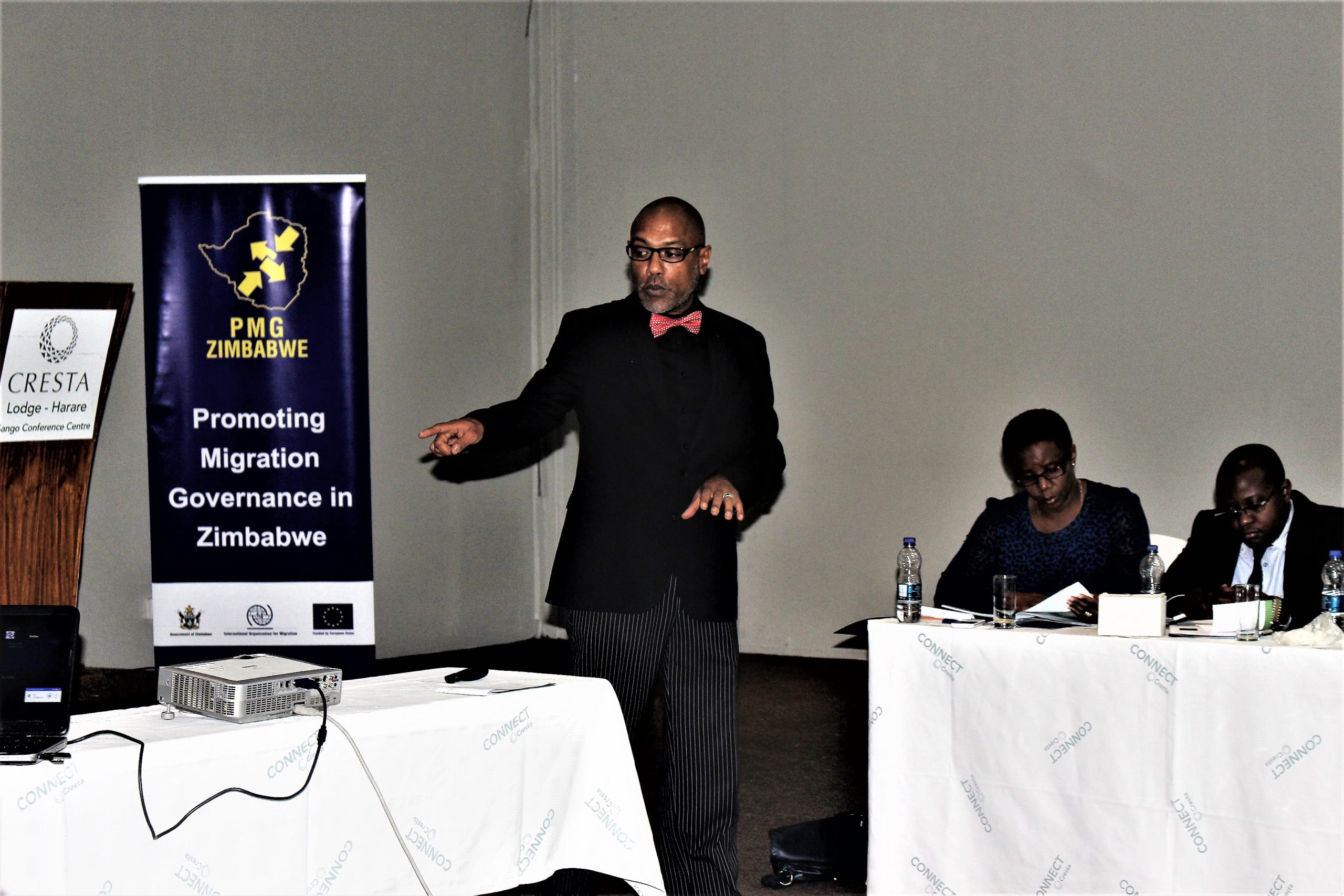By Byron Mutingwende
There is a need for national and international coordination and cooperation among the relevant authorities and agencies involved in border management and trade facilitation to have open, but well controlled and secured borders, it has emerged.
Marcellino Ramkishun, Senior Migration Management Specialist from the IOM African Capacity Building Centre, in Moshi, Tanzania, made the remarks while sharing his experiences at the national sensitization workshop on integrated border management (IBM) held at the Cresta Lodge Hotel in Harare recently.
“With IBM in place, migrants should cross the borders easily and quickly. There is need for collaboration among countries to methodologically monitor the movements of goods and people at the borders. Countries need to (eventually) provide a rapid joint response to the massive flow of migrants due to natural disasters or economic and political crises that lead to migration,” Ramkishun said.
The former immigration and senior police officer said due to the proliferation of Internet and other forms of technological advancements, there was an increase in cross-border exchange of information.
“We need IBM to promote orderly border management in order to benefit from the positive aspects of globalisation. IBM also strengthens and coordinates the responses of the State against international terrorism, and cross-border crimes like trafficking of persons, smuggling of migrants and trafficking of firearms.”
Ramkishun alluded to emerging threats such a the use of infectious diseases and the threat of terrorism by using individual migrants to insert diseases or collaborate with organised criminals in refugee camps as one of the reasons that justifies the need for IBM.
He said that for IBM system to work effectively there was a need for proper equipment; trained and motivated staff; a sound legal basis; clear division of tasks and responsibilities; adequate infrastructure; law enforcement and effective information exchange platforms.
Lily Sanya, the Chief of Mission for the International Organisation for Migration (IOM) Zimbabawe said that the IBM training package would serve as a set of nationally endorsed standards used to recognise and assess the skills and knowledge border management staff need to perform effectively within the framework of integrated border management.
The IOMUN as the leading migration agency, has been operating in Zimbabwe since 1985 and from 2005 has been supporting the Government of Zimbabwe (GoZ) in border management. Currently, IOM with support from the IOM Development Fund (IDF) and the 11th European Development Fund, is funding two projects entitled “Comprehensive Border Assessments and Immigration Policy for Enhancing Capacity on Integrated Border Management in Zimbabwe” and ‘Promoting Migration Governance in Zimbabwe” respectively.
The overall objective is to support the establishment of a migration governance framework in Zimbabwe to enhance the role of State and non-State actors in managing migration in a migrant-centred, gender-sensitive, and development-oriented manner. To achieve the objectives outlined above, IOMUN has coordinated with various ministries namely the Ministry of Home Affairs, the Ministry of Industry and Commerce (MoIC), the Ministry of Foreign Affairs and the Ministry of Public Service, Labour and Social Welfare, amongst others.
Sanya hailed Zimbabwe for improvement on the ranking of Trafficking Victims Protection Act’s minimum standards of addressing human trafficking. The country is now on Tier 2 for its efforts towards addressing human trafficking, down from Tier 3. Those countries on Tier 1 fully meet the TVPA’s minimum standards.






